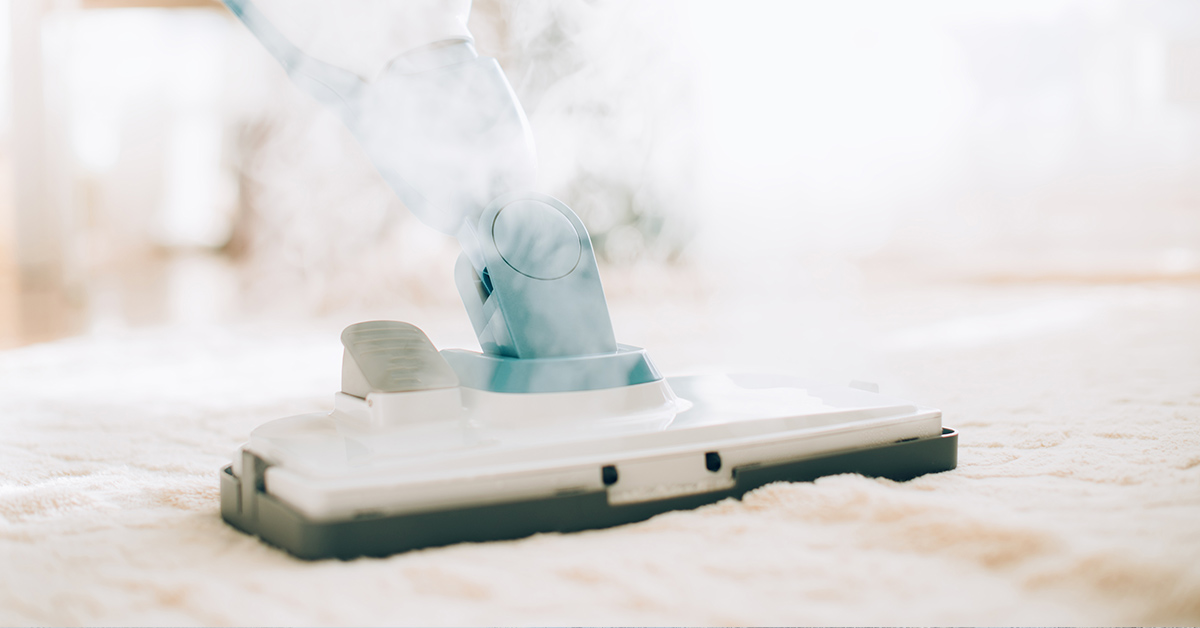Cleaning can be stressful. No matter how often you mop, the floor gets dirty. You suddenly can’t remember the last time you changed the sheets. You used the wrong type of cleaning agent, and now the counters have a strange sheen. Everyone wants to have a neat home, but cleaning it is a whole other story. However, the more you know, the less stressful the cleaning process could be. Here is a list of cleaners to avoid and the proper way to use other products. Which one surprises you the most? Here are 10 Cleaners You May Need To Avoid (and How to Use Them Properly)
Read: 10 Tips to Keep Your Bathroom Smelling Fresh
Magic Eraser
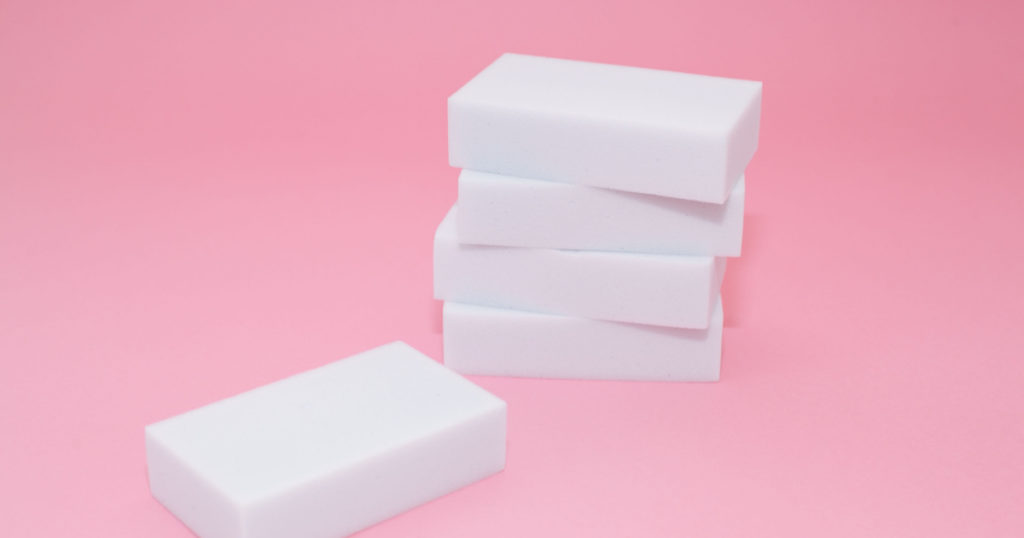
Magic Erasers are versatile cleaning tools, but they are not the best solution for everything. For instance, don’t use them on marble and granite countertops. The eraser could damage the sealant and make the surface look dull. The same applies to stainless steel. Similarly, the abrasiveness of the eraser could ruin a car’s paint job. In short, be sure you know which surfaces to use the eraser on and which to avoid. If you’re not sure, do a small spot test before cleaning the entire area. [1]
Furniture Polish
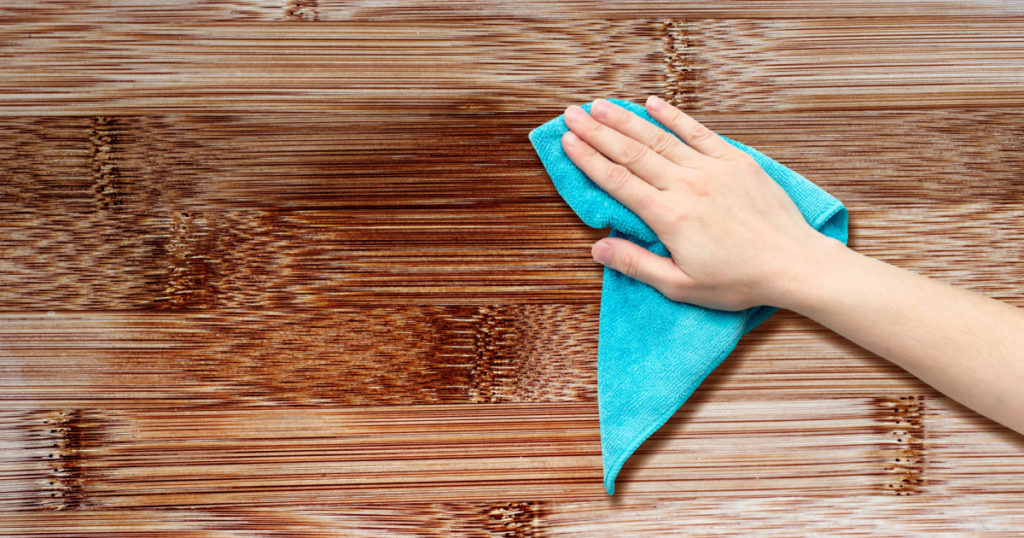
Some furniture polishes actually damage wooden surfaces. They dull the finish, attract dust, and even darken the color over time. Cleaners to avoid include aerosol and liquid polishes. Semi-solid polishes or “paste wax” are ideal for wooden surfaces. (Just make sure your brand doesn’t include silicone.) Keep in mind that it does take a little more effort to use this kind of polish. But the good news is that you don’t need to polish often, just twice a year to three to four years depending on the item. [2]
Bleach
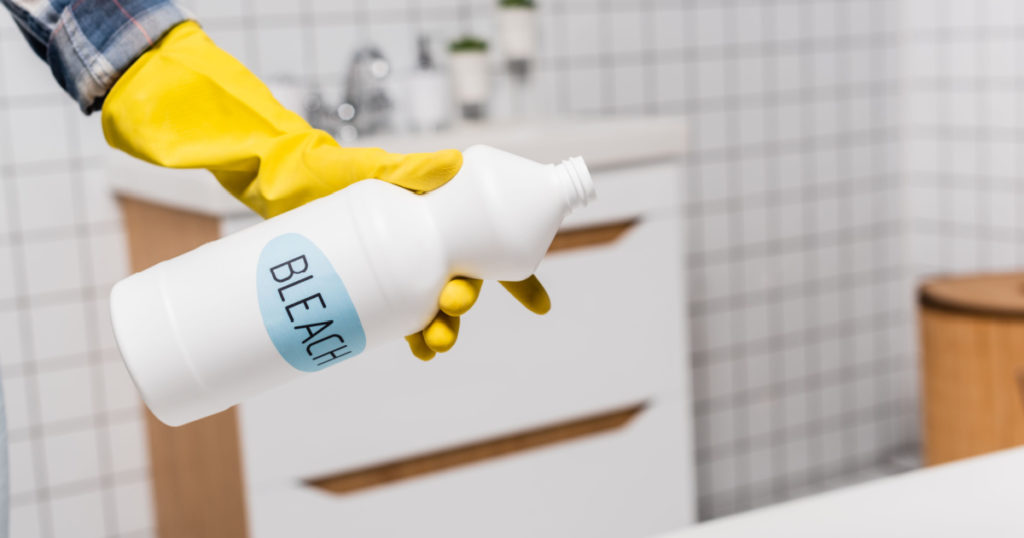
Bleach is a great cleaner and disinfectant, but it’s hazardous when it’s not used properly. Firstly, don’t mix bleach with other products like vinegar, alcohol, and hydrogen peroxide. This causes the bleach to release a toxic gas that’s harmful to inhale. Secondly, diluted bleach is as effective as high-concentrate bleach — and much safer. Diluting bleach with water could prevent skin, respiratory, and eye irritations. Thirdly, whenever you use bleach, ensure the area is well-ventilated to avoid those toxic fumes. [3]
Read: Some people are just finding out why they get bleach patches on their underwear
Vinegar
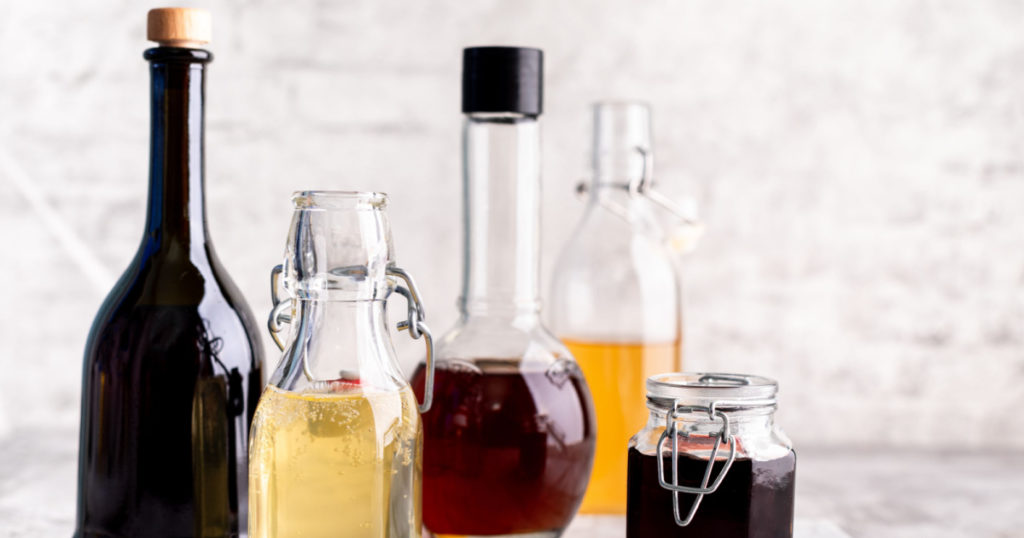
Many people believe that vinegar is the perfect all-purpose cleaner, but this is not the case. Vinegar can break the sealants on countertops and dull the shine. Similarly, vinegar can dull and dissolve the finish on wooden and stone tile flooring. Here’s another tip: Vinegar is not a good degreaser. So if you’re trying to scrub the grime off the stovetop or range, go for an alkaline cleaner. [4]
Steam Mops
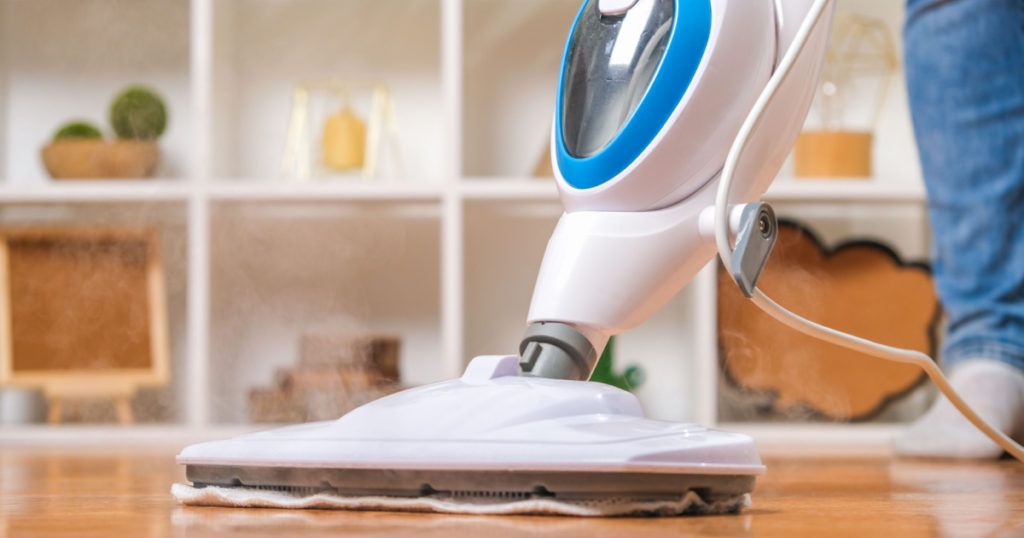
Steam mops may seem like the smarter choice. After all, you’re avoiding harsh chemicals. But sometimes steam mops are more damaging than people realize. Even in a low or medium-pressure setting, experts don’t recommend the mop on wooden or laminate floors or floors with gaps, like vinyl planking or tiles. Forcing steam into cracks can cause swelling, warping, delamination, and even cause mold to build up. [5]
Toilet Brushes
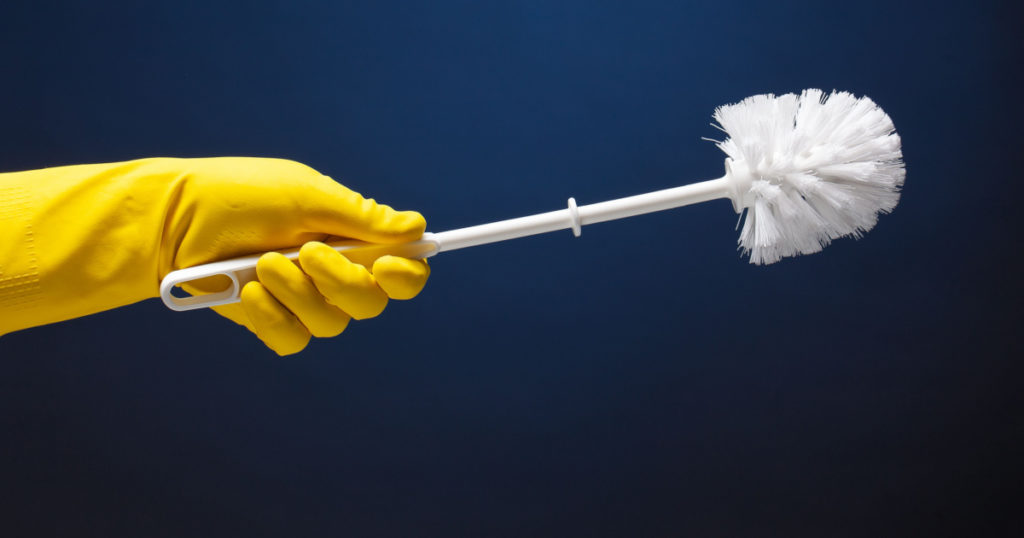
That little toilet brush bowl is like a petri dish of bacteria. To avoid this, clean the toilet brush with disinfectant and hot water and let it dry before returning it to its bowl. Many people opt for toilet brushes with disposable heads to avoid unsanitary buildup. Similarly, there are silicone ones on the market that dry a lot faster than the classic bristles. Even so, some people prefer to omit the brush entirely, layer on rubber gloves, and wash the toilet themselves. [6] [7]
Air Fresheners
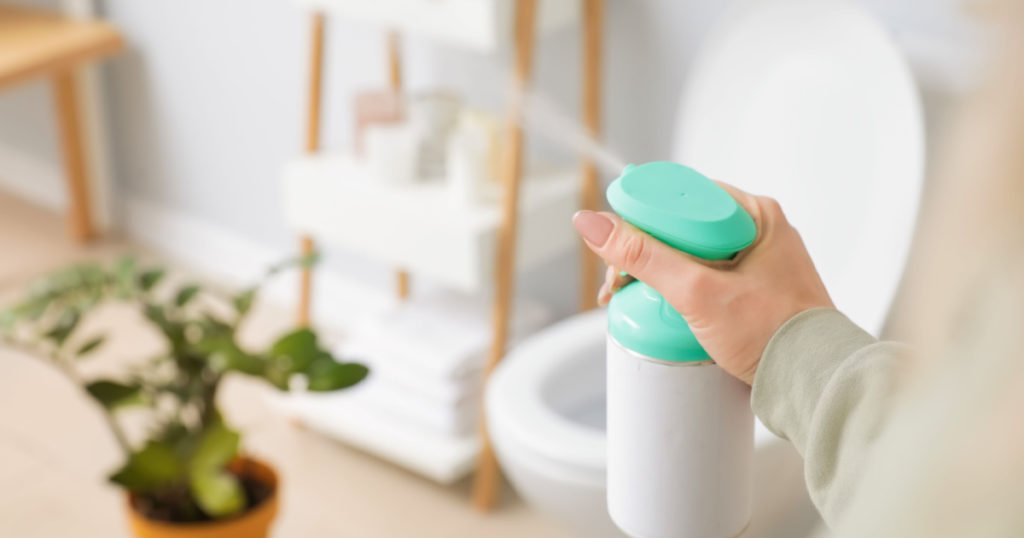
They are common home items, but they are also common air pollutants that can impair air quality, even “natural” and “organic” ones. Air fresheners have been linked to headaches, migraines, asthma attacks, infant illness, and breathing issues. There’s a reason why so many healthcare establishments and workplaces have a fragrance-free policy. Perhaps some homes should take on similar practices. [8]
Read: Air Freshener Hack to Keep Your House Smelling Like a Dream
Blocked Vacuums
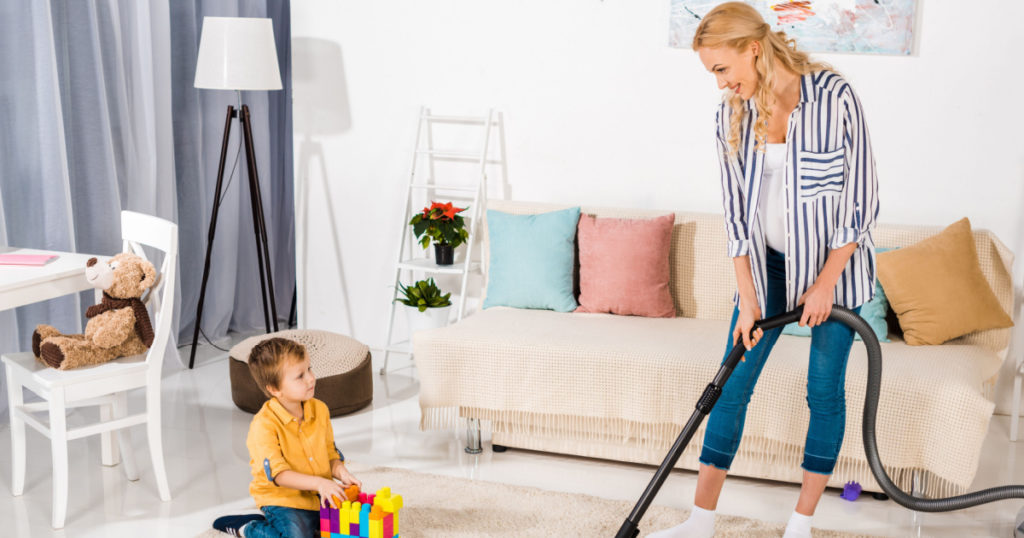
When vacuum cleaners get blocked, they lose their suction power and overheat. Therefore, it’s important to remove the dirt and debris in the machine after every use. Additionally, check the vacuum’s filters. Then take them outside and tap against a hard surface to remove the dust. If the filters are washable, rinse them under warm water and allow them to air-dry for 24 hours. [9]
Mixing Cleaners
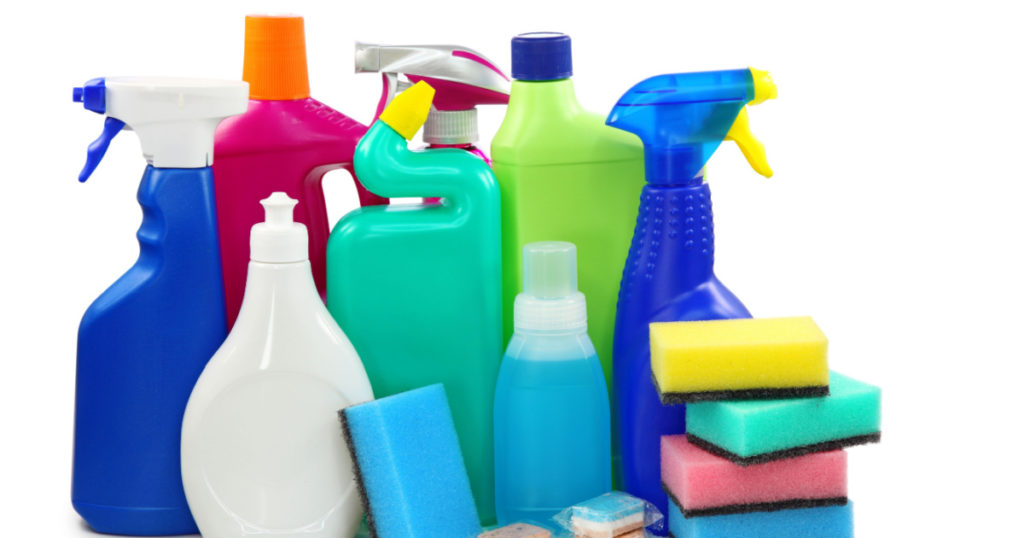
Bleach isn’t only one of the cleaners to avoid combining with others. Other cleaning products can become toxic when mixed. It’s advisable to stick to one cleaner at a time. But if you do mix, remember to keep the area well-insulated and wear protective gloves while you clean. [10]
Old Kitchen Sponges
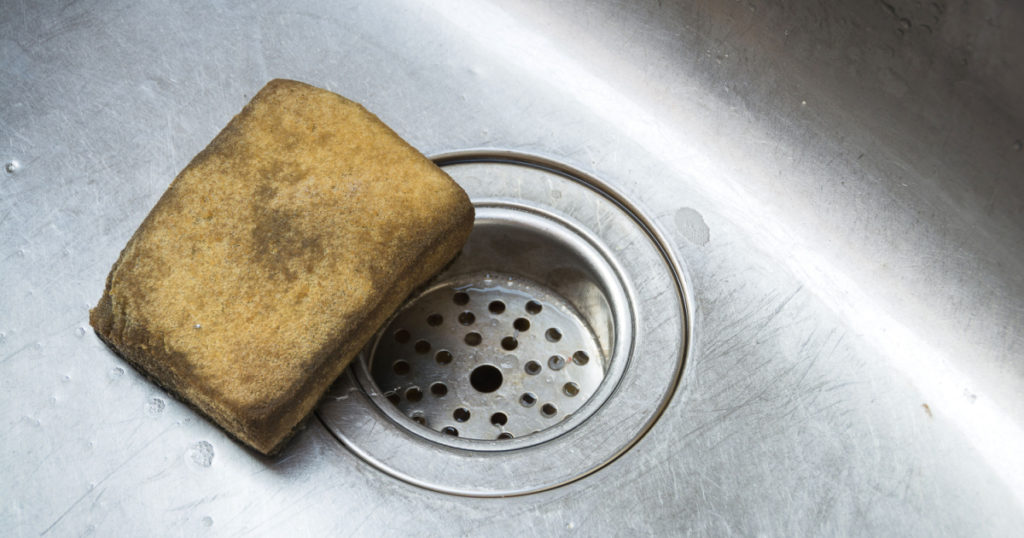
A study from 2017 found 362 different kinds of bacteria living in sponges from ordinary homes. No wonder, there are often bits of food for the bacteria to eat and the dampness makes ideal breeding grounds. Therefore, it’s better to opt for a plastic or silicone brush instead of a sponge. They tend to stay drier and they have fewer cracks for the bacteria to fester in. If you’d prefer to keep your sponges, wash them every few days by soaking them in a bleach and water solution or running them through the dishwasher. [11]
Keep Reading: People On TikTok Are Cleaning Their Dishwasher Filters And The Results Will Horrify You
Sources
- “10 Things You Should Never Do with a Magic Eraser.” Family Handyman. Rachel Brougham. May 6, 2020.
- “Using Furniture Polish When Dusting.” The Spruce. Sarah Aquirre. October 12, 2019
- “6 Things You Should Never Do With Bleach.” AARP. Peter Urban.June 11, 2020
- “9 Things You Should Never Clean With Vinegar.” Consumer Reports. Perry Santanachote.December 2, 2020
- “Here’s Why You Need to Stop Using a Steam Mop On Your Floor.” Family Handyman. Elizabeth Manneh. April 16, 2020
- “The new household rules: ditch your toilet brush and wash much, much more.” The Guardian. Paula Cocozza. February 21, 2019
- “Is cleaning my toilet brush really a *thing* – and what’s the best way to do it.” The Journal.ie. Laura de Barra. August 2, 2019
- “Ten questions concerning air fresheners and indoor built environments.” Building and Environment. Anne Steinemann. January 2017
- “How to clean your vacuum cleaner.” Good Housekeeping. GHI Team. January 25, 2021
- “The household cleaners that you should never mix at the risk of creating toxic gasses.” Insider. Ashley Laderer. March 31, 2020
- “You Should Throw Away Your Germy Kitchen Sponge Immediately. Here’s How to Wash Your Dishes Instead.” Time. Alice Park. April 27, 2018
